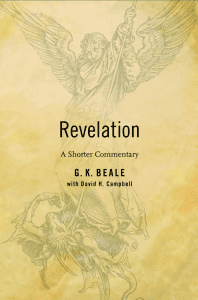The Book of Revelation is Theo-Politics, a book about a politics that claims God is king and no one else is, a book that declares that God alone is to be worshiped and no one else, a book that announces that God alone is to be obeyed and no one else. Thus, it is Theo-Politics.
Somehow I forgot this book; it got buried under a few others … but happily I found it and we need to get back into the groove with a way to read Revelation that avoids the zaniness of so much of eschatology that we read and hear today.
 Michael Gorman, Reading Revelation Responsibly: Uncivil Worship and Witness: Following the Lamb into the New Creation discusses this theopolitics theme throughout his book.
Michael Gorman, Reading Revelation Responsibly: Uncivil Worship and Witness: Following the Lamb into the New Creation discusses this theopolitics theme throughout his book.
“Nearly all interpreters … recognize that the entire book is a critique and parody of the Roman Empire and of the cult of the emperor…” (40).
Where do you think Revelation is clarified by this anti-empire reading? How does the gospel itself speak to Revelation as an anti-empire text? Do you see Revelation as theopolitics? What does this reading do to the many ways people read Revelation today?
Gorman sees six elements of the Roman Empire:
1. The gods have chosen Rome.
2. Rome and its emperor are agents of God’s rule, will, salvation and presence.
3. Rome manifests the gods’ blessings … among those who submit to Rome’s will.
4. The rule of the gods of Rome was accomplished through violence, domination, and “pacification.”
5. The emperor himself was worthy of praise, devotion, and allegiance.
6. The imperial age is the long-awaited golden age.
Rome is the Babylon of Revelation; Rome is criticized throughout; Revelation is theopolitics.
So, Gorman asks, what is an Empire? His definition is important and vital:
An entity that has come to widespread (global or nearly global) dominance
through deliberate expansion
by means of the extreme exercise of some form(s) of power
resulting in the creation of colony-like clients of the entity and
of enemies who perceive the entity as oppressive.











